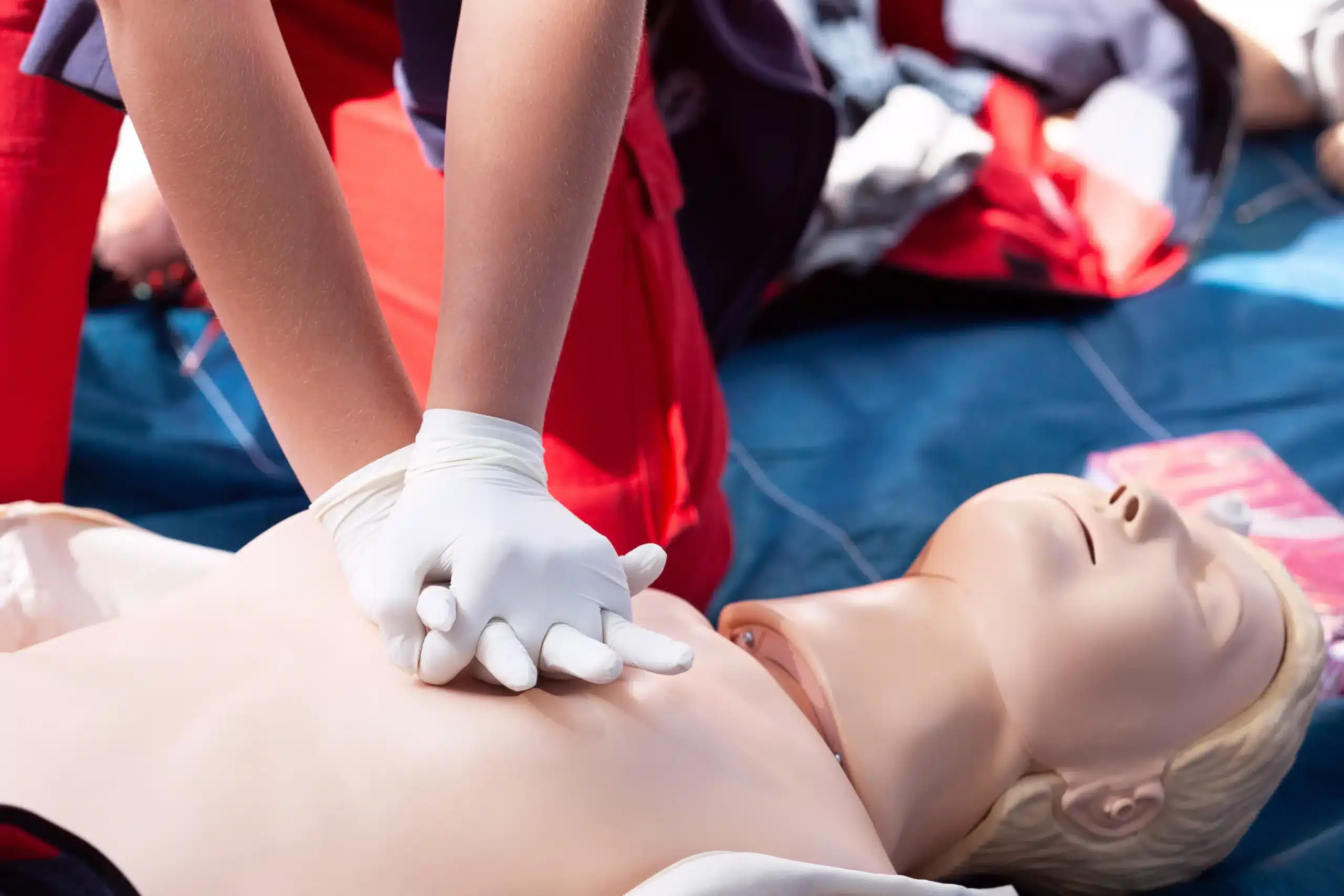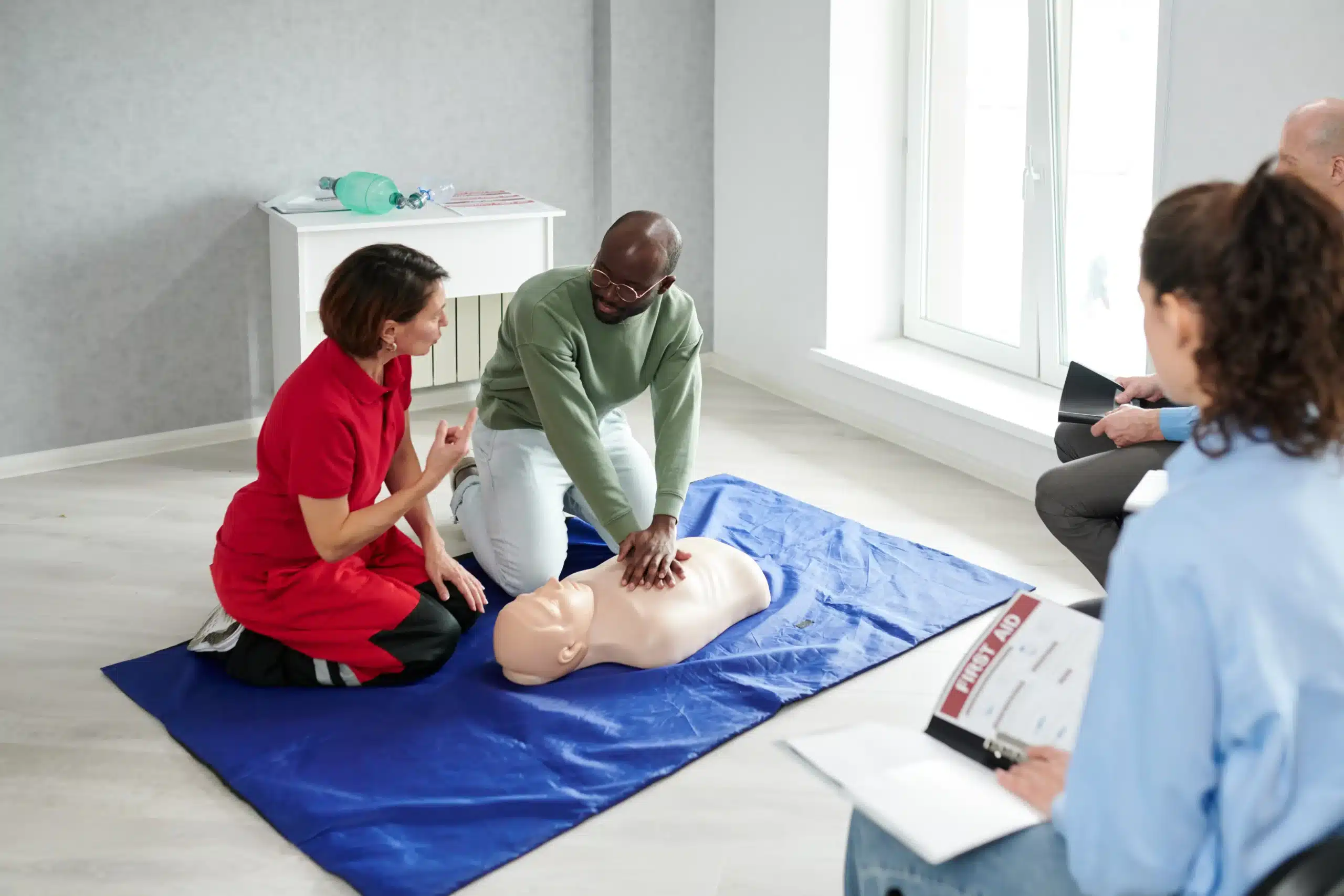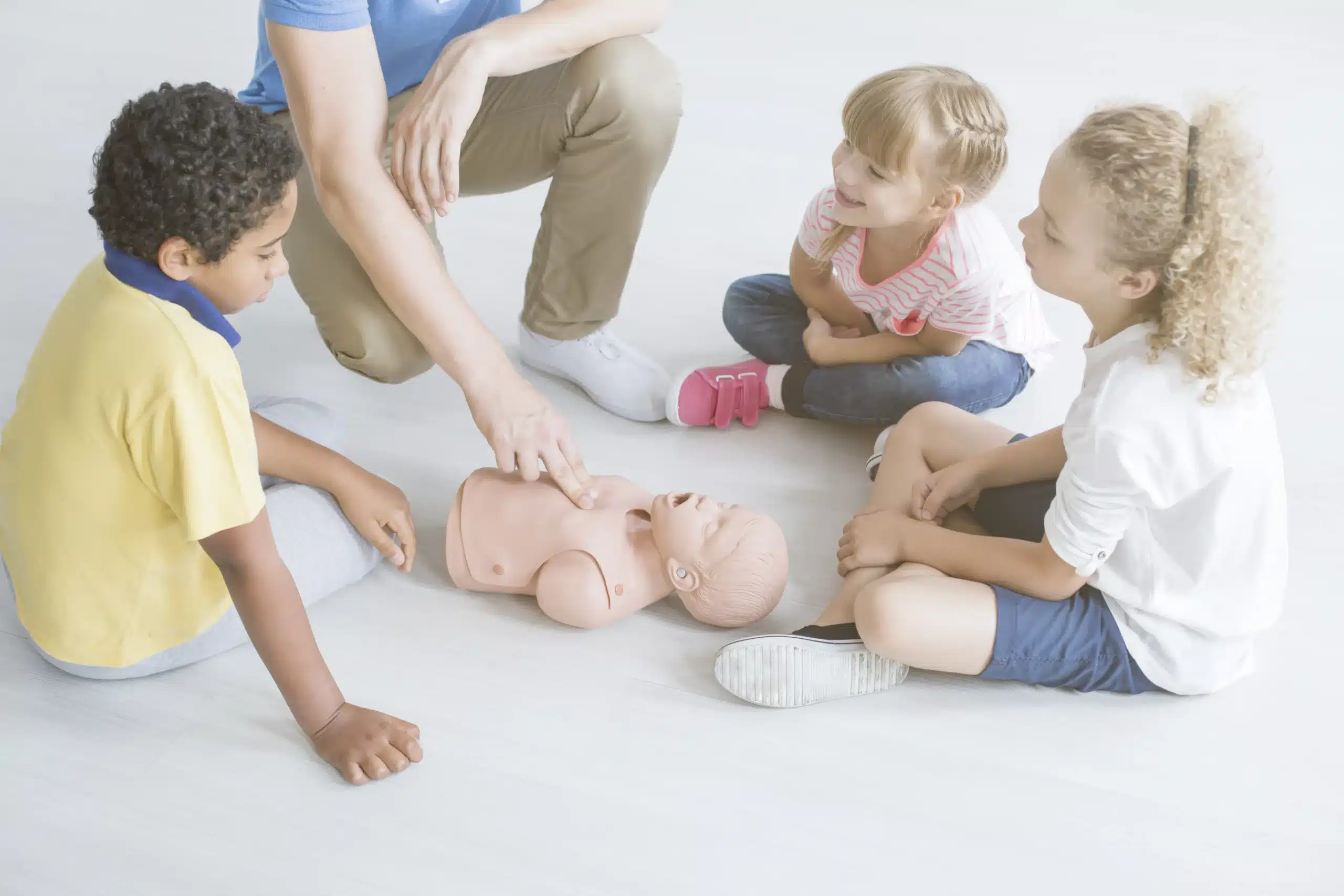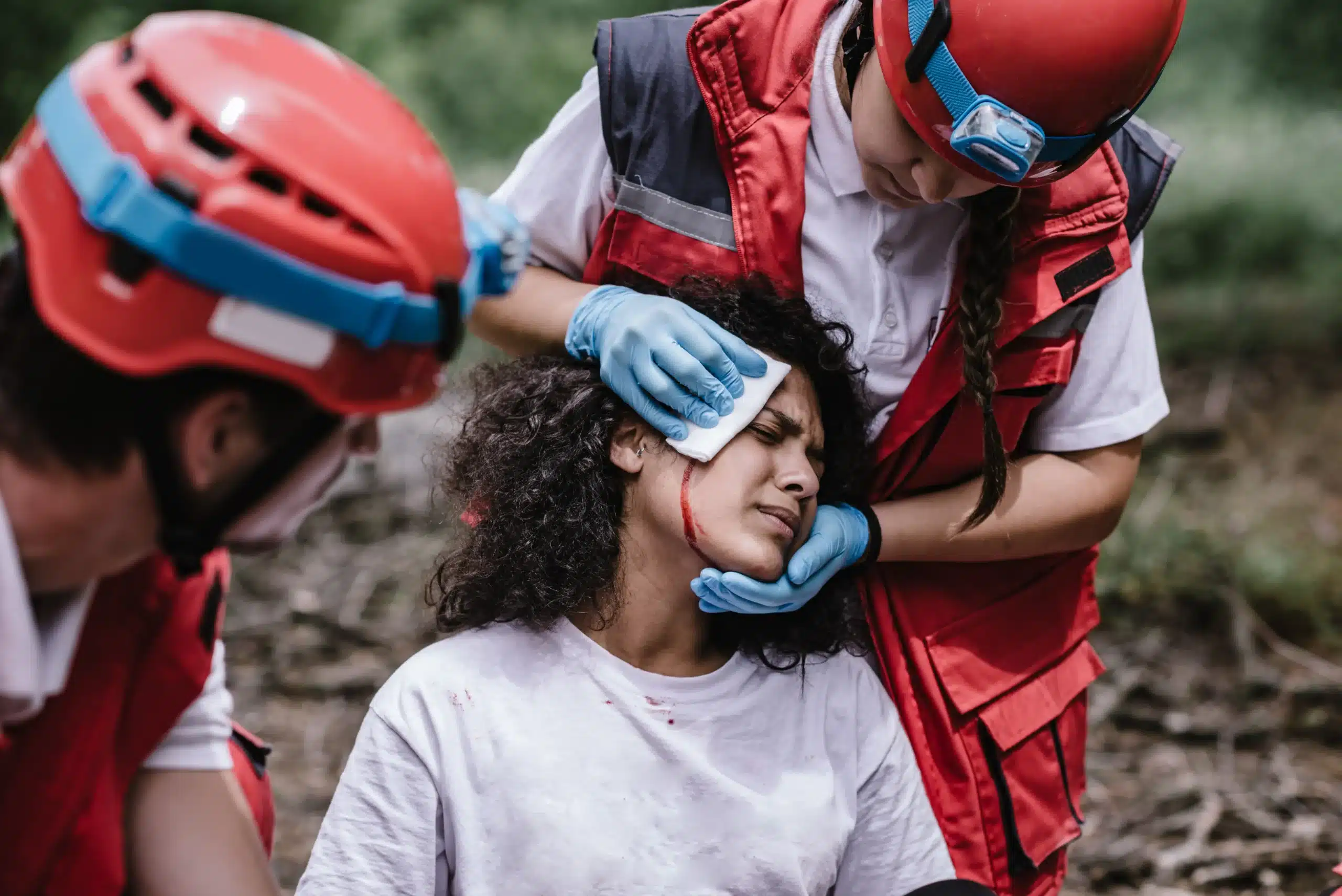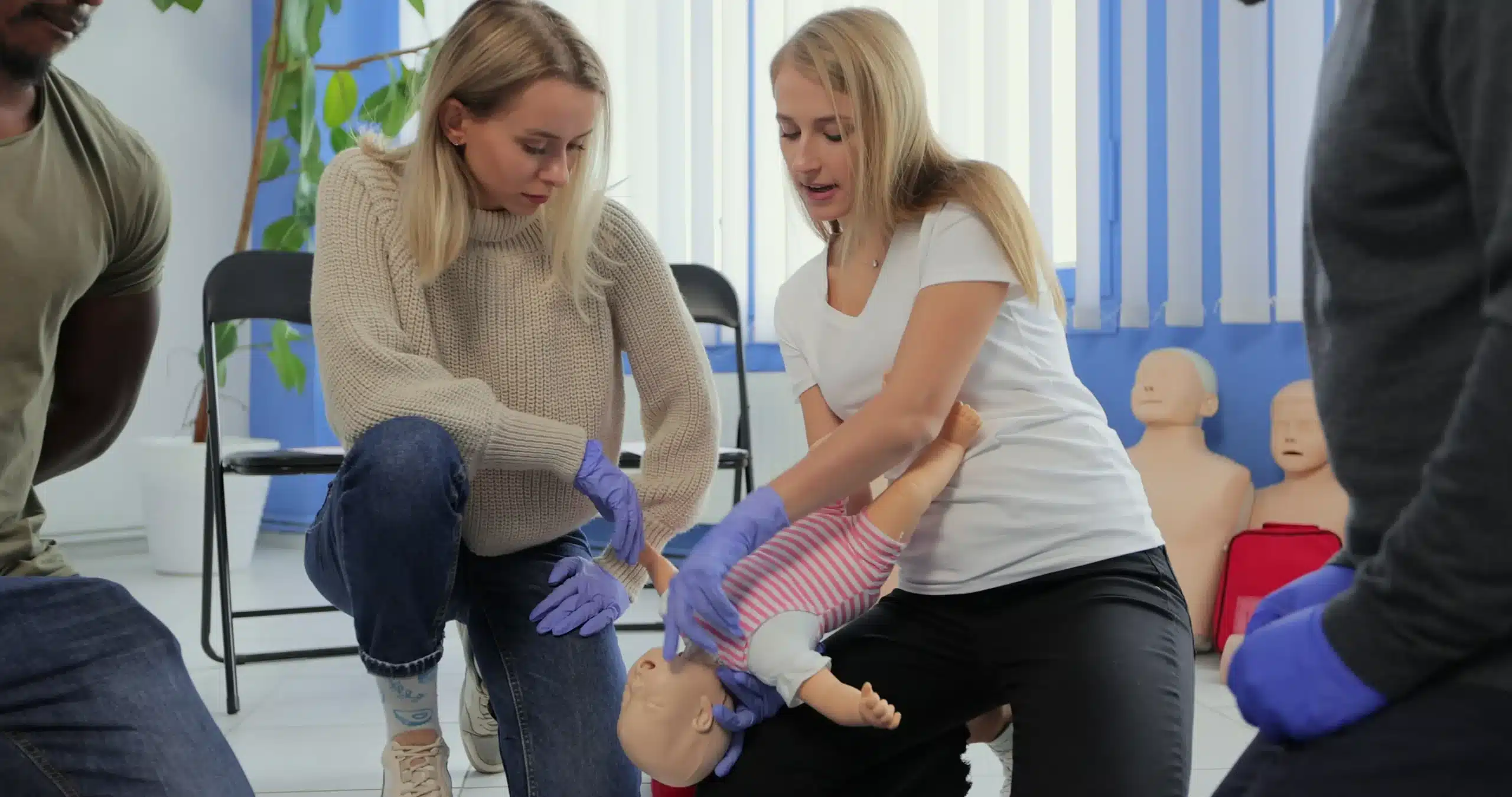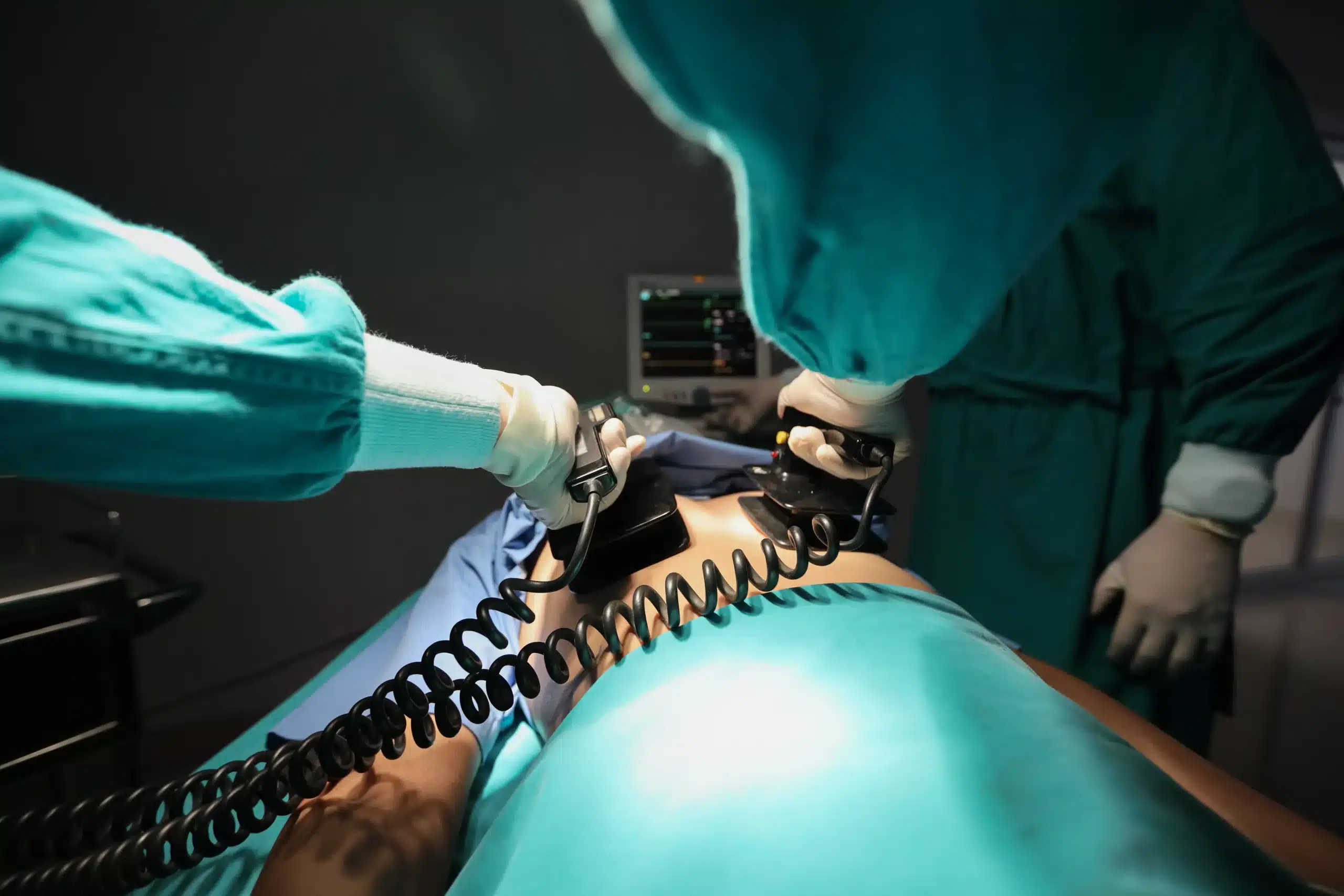Your BLS certification is about more than just checking a box; it’s about being prepared to make a difference when it matters most. Whether you’re a healthcare professional, a caregiver, or simply someone who wants to be equipped to handle emergencies, BLS recertification is a vital step. If you’re looking for “BLS recertification near me,” this guide is for you. We’ll explore everything from the basics of BLS to the different recertification options available, including online courses, in-person classes, and blended learning formats. We’ll also discuss the costs involved, how to choose the right provider, and the importance of staying current with the latest guidelines. Let’s empower you with the knowledge and skills to confidently respond to any situation.
Key Takeaways
- Regular BLS recertification is crucial for healthcare providers and other professionals: It ensures you’re always prepared to respond effectively in emergencies, maintaining both your skills and professional standing. Consider online, in-person, or blended learning options to fit your schedule.
- Select a reputable BLS recertification provider: Accreditation, instructor experience, scheduling flexibility, and positive reviews are key factors to consider when choosing a course. Compare providers to find the best fit for your needs and budget.
- Maintain your BLS certification to stay current: Remember that BLS certification typically expires after two years. Schedule your recertification in advance to avoid any gaps in your qualifications and keep your lifesaving skills sharp.
What is BLS Recertification?
BLS Recertification: A Definition
BLS recertification is how healthcare providers refresh their Basic Life Support skills. It’s a refresher course on life-saving techniques and protocols, like a tune-up to keep your skills sharp and your knowledge current. Staying up-to-date is not only important for patient care but is often a job requirement. At Safety Training Seminars, we offer BLS recertification courses designed to fit your busy schedule.
Why Recertify Your BLS?
Recertification is critical for ensuring you’re prepared to handle emergencies. Regular training reinforces best practices and keeps your skills fresh. It also helps prevent lapses in your certification, which could affect your employment. Beyond the professional advantages, recertifying your BLS skills means you’re equipped to help in a crisis, whether at work or in your personal life. Learn more about our low price guarantee for BLS recertification courses.
Who Needs BLS Recertification?
BLS certification isn’t just for doctors and nurses. It’s essential for a wide range of professionals, including paramedics, first responders, and anyone involved in direct patient care. Even if not strictly required for your job, having current BLS certification can make you a more valuable employee and a more confident caregiver. We offer group discounts for BLS recertification, making it easy and affordable for teams to train together. Contact us to learn more about our BLS, ACLS, and PALS courses.
Find BLS Recertification Courses Near You
Finding the right BLS recertification course can feel overwhelming, but several convenient options are available. Let’s explore some of the most common places to find BLS recertification near you.
Safety Training Seminars in Livermore
If you’re in the Tri-Valley area, Safety Training Seminars in Livermore offers various American Heart Association courses, including BLS recertification. They focus on providing excellent customer service and competitive pricing, making them a convenient and affordable option for locals. Their two-year certification and classes designed for both individuals and groups make renewing your BLS certification straightforward. Serving Dublin, Livermore, and Mountain House, their location offers accessible, high-quality training. You can find more information about their discount group classes on their website.
American Red Cross
The American Red Cross is another well-known provider of BLS recertification courses. They offer a range of learning formats, including online and in-person options, catering to different learning styles and schedules. Check their website to find a course near you and learn more about their program specifics.
American Heart Association
The American Heart Association (AHA) also offers various BLS recertification options. You can find courses through their website or through authorized training centers like Safety Training Seminars. The AHA provides up-to-date training materials and ensures high-quality instruction. They often have a range of formats available, including blended learning that combines online coursework with in-person skills sessions. For a quicker certification or recertification option, consider their RQI program.
Local Hospitals and Medical Centers
Many hospitals and medical centers offer BLS recertification courses, often geared towards healthcare professionals. These courses are usually taught by experienced medical personnel and provide hands-on training in a realistic setting. Check with hospitals in your area to see what courses they offer and whether they are open to the public or exclusively for their employees.
Community Colleges
Community colleges frequently offer BLS recertification as part of their continuing education programs. These courses can be a cost-effective way to renew your certification, and they often have flexible schedules to accommodate working professionals. Contact your local community college to inquire about their BLS recertification offerings.
BLS Recertification: Online vs. In-Person
Deciding how to recertify your Basic Life Support (BLS) skills? Both online and in-person options offer unique advantages. Understanding these differences can help you choose the best fit for your learning style and schedule.
Benefits of Online Recertification
Online recertification offers unparalleled flexibility. Juggling work, family, and other commitments? Online courses let you learn at your own pace, fitting training around your busy schedule. You can study anytime, anywhere, from your computer, tablet, or even your phone. This online accessibility is especially helpful for those who prefer self-directed learning and appreciate the convenience. Many providers, including ACLS Medical Training, offer 100% online BLS recertification courses that cover all the essential material. If you’re looking for a quick and easy way to renew your BLS certification, online learning might be the perfect solution. For healthcare professionals, it’s crucial to ensure your online BLS certification is accredited.
Advantages of In-Person Training
While online recertification offers convenience, in-person training provides a valuable hands-on learning experience. The American Heart Association (AHA) often requires an in-person skills assessment component for BLS certification. These classes offer hands-on practice and instructor feedback, ensuring you develop the muscle memory and confidence to perform BLS effectively in real-life scenarios. This direct interaction allows for personalized guidance and immediate clarification of any questions. For those who learn best through hands-on practice and personal instruction, in-person training is the ideal choice. In-person BLS recertification ensures you gain practical skills and confidence.
Choose the Right Format
Choosing the right BLS recertification format depends on your individual needs and preferences. If you value the flexibility of online learning but also appreciate the benefits of in-person instruction, a hybrid course might be the perfect solution. These courses combine online learning modules with an in-person skills session, offering a balanced approach. No matter which format you choose, ensure your BLS recertification provider is accredited and reputable. Select a renewal course that fits your schedule, learning style, and meets all the requirements for your profession. Whether you choose online, in-person, or a hybrid approach, the most important thing is to stay current with your BLS certification and confidently provide effective care.
What to Expect During BLS Recertification
Getting recertified in Basic Life Support (BLS) is a straightforward process designed to refresh your essential lifesaving skills. Here’s what you can expect:
Course Content and Duration
BLS recertification courses cover core concepts and techniques, including high-quality CPR for adults, children, and infants; the AHA Chain of Survival; and effective relief of choking. You’ll also review how to use an automated external defibrillator (AED) and learn about the importance of teamwork and communication during emergencies. The American Heart Association (AHA) offers various BLS renewal options, from convenient online courses to traditional in-person classes. Safety Training Seminars offers both options, allowing you to choose the format that best suits your needs. These courses cover all key BLS skills, providing you with the confidence to respond effectively in any emergency situation.
Hands-On Practice
While online learning offers flexibility, the American Heart Association (AHA) requires an in-person skills assessment component for BLS certification. This hands-on practice is crucial for mastering the physical skills needed to perform BLS effectively. You’ll work with instructors and practice on mannequins, simulating real-life scenarios to build muscle memory and confidence. Blended learning courses offer a flexible approach to recertification, combining online learning with in-person skills sessions.
Assessment and Certification
After completing the course content and hands-on practice, you’ll demonstrate your proficiency through a written exam and skills test. Upon successful completion, you’ll receive your BLS recertification card, valid for two years. Many providers, including the National CPR Foundation, offer instant temporary wallet cards, with the official card mailed soon after. While obtaining BLS certification requires a time commitment, the ability to provide immediate care in a medical emergency makes it invaluable for healthcare professionals and anyone committed to public safety.
How Much Does BLS Recertification Cost?
Finding the right BLS recertification course involves several factors, and cost is definitely one of them. Let’s break down the expenses involved so you can budget effectively.
Compare Provider Prices
BLS recertification prices vary depending on the training provider, the format you choose (online or in-person), and your location. Online recertification courses tend to be more budget-friendly. For example, the National CPR Foundation offers an AHA-compliant online BLS renewal for $14.95. In-person training may have higher costs due to facility and instructor fees. It’s always a good idea to compare prices from several providers, including checking with local businesses like Safety Training Seminars, to find the best fit for your budget. Don’t hesitate to call around and ask about special offers or discounts. Many training centers offer competitive pricing, so doing your research can really pay off.
Group Discounts and Special Offers
If you’re recertifying with a group of colleagues, ask about group discounts. Many providers, including Safety Training Seminars, offer reduced rates for group training. This can be a smart way to manage costs and ensure everyone stays certified. Also, keep an eye out for promotions or limited-time offers that can help you save.
Hidden Costs
When comparing prices, look beyond the initial cost. Some courses might advertise a low upfront fee but tack on extra charges for study materials, certification cards, or retesting. American Health Training highlights the importance of understanding all costs before you sign up. Ask providers about any potential extra fees so you can budget accurately. A reputable provider will be upfront about all expenses involved.
Choose the Right BLS Recertification Provider
Finding the right BLS recertification provider is crucial for a valuable learning experience. Here’s what to consider:
Accreditation and Reputation
First, confirm the provider’s accreditation. Reputable providers affiliate with recognized organizations like the American Heart Association (AHA). For example, Safety Training Seminars is a woman-owned AHA Training Center offering various courses, including BLS. This affiliation ensures the training meets industry standards and your certification will be widely accepted. Check if healthcare professionals or hospitals in your area endorse the provider, which further validates their credibility.
Instructor Expertise
Experienced instructors make a big difference. Look for providers with instructors who have extensive real-world experience and strong teaching skills. Safety Training Seminars emphasizes hands-on training in their BLS certification courses, which can be invaluable. Instructors should be able to answer your questions thoroughly and provide helpful guidance.
Scheduling Flexibility
Your schedule is busy, so choose a provider that offers flexible scheduling. This could include weekend or evening classes, online modules, or accelerated programs. If you appreciate online learning but also value in-person instruction, a hybrid course might be perfect. Consider your learning style and preferences when making your decision.
Customer Reviews and Ratings
Before committing to a provider, check customer reviews and ratings. These offer valuable insights into the quality of instruction, customer service, and overall experience. Safety Training Seminars prioritizes excellent customer service and offers a low price guarantee. Positive feedback from previous students can give you confidence in your choice.
Maintain Your BLS Certification
Once you’ve earned your BLS certification, staying current is key. This section covers important info about renewals, staying up-to-date with the latest guidelines, and common misconceptions surrounding BLS certification.
Renewal Timeline
BLS certification is typically valid for two years. Plan to renew your certification before it expires. You usually have a grace period—around 30 days—after the expiration date to recertify. Check with your certifying organization, such as the American Heart Association, for their specific renewal policy. Don’t let your skills lapse! Timely renewal ensures you’re always prepared to provide crucial life-saving care. At Safety Training Seminars in Livermore, we offer convenient BLS renewal courses to help you stay current.
Stay Current with BLS Guidelines
Staying current with the latest BLS guidelines is essential for providing effective care. Guidelines and best practices can change, so regular recertification ensures you’re using the most effective techniques. The Red Cross offers various learning formats, including online and in-person courses, making it easier to fit recertification into your busy schedule. Check out our course schedule for upcoming BLS recertification classes in Livermore.
Debunking Common Misconceptions
Several myths surround BLS certification. Let’s clear them up:
-
Myth 1: BLS Certification is Only for Doctors and Nurses: Absolutely not! BLS certification is valuable for anyone in a healthcare setting, including medical assistants, dentists, physical therapists, and other healthcare professionals. It’s also a smart move for those in other fields, like teachers, coaches, and childcare providers. Our EMSA Child Care Health & Safety training incorporates BLS principles and is specifically designed for childcare professionals.
-
Myth 2: BLS Certification is Too Time-Consuming: BLS recertification courses are designed to be efficient. Many providers, including Safety Training Seminars, offer streamlined courses that respect your time.
-
Myth 3: BLS Certification is Not Necessary if You Have CPR Training: While CPR is a component of BLS, BLS certification covers a broader range of life-saving skills, including using an automated external defibrillator (AED) and performing basic airway management. Learn more about our comprehensive CPR and First Aid certification courses.
-
Myth 4: Online BLS Certification is Not as Credible as In-Person Training: Both online and in-person BLS certifications are credible if you choose a program from a recognized provider like the American Heart Association or the Red Cross. Make sure the program you choose aligns with your learning style and schedule.
-
Myth 5: BLS Certification is a One-Time Requirement: As mentioned earlier, BLS certification needs to be renewed every two years. Regular renewal ensures your skills are sharp and up-to-date. Contact us today to learn more about our BLS recertification options.
Related Articles
- BLS Renewal in Dublin: A Simple Guide – Livermore CPR Classes
- BLS Renewal Near Me: Find the Right Course – Livermore CPR Classes
- BLS Renewal in Livermore: Your Complete Guide – Livermore CPR Classes
- BLS Certification in Mountain House for Healthcare Providers – Livermore CPR Classes
Frequently Asked Questions
How often do I need to recertify my BLS? BLS certification is typically valid for two years. It’s best to renew before it expires, though there’s usually a short grace period afterward. Check with your certifying organization or training center for their specific policy.
What’s the difference between BLS and CPR certification? CPR is a vital part of BLS, but BLS covers a wider range of skills. BLS includes CPR, but also covers using an AED and basic airway management. It provides a more comprehensive approach to life support.
What if my BLS certification has already expired? If your certification has lapsed, you’ll need to take a recertification course. Don’t worry, the process is similar to the initial certification, just a refresher to get your skills and knowledge back up to par.
Are online BLS recertification courses accepted? Yes, online BLS recertification courses are widely accepted, provided they are from a recognized and accredited provider like the American Heart Association or the Red Cross. Many healthcare professionals find online recertification a convenient way to stay current. Just make sure the course includes a hands-on skills assessment component, as this is often required.
How can I find BLS recertification courses near me? Several resources can help you find local BLS recertification courses. Check with hospitals, community colleges, and established providers like the American Red Cross and the American Heart Association. You can also search online for “BLS recertification near me” to find local training centers. Safety Training Seminars in Livermore offers various AHA-compliant courses, including BLS recertification, and serves the Tri-Valley area.
